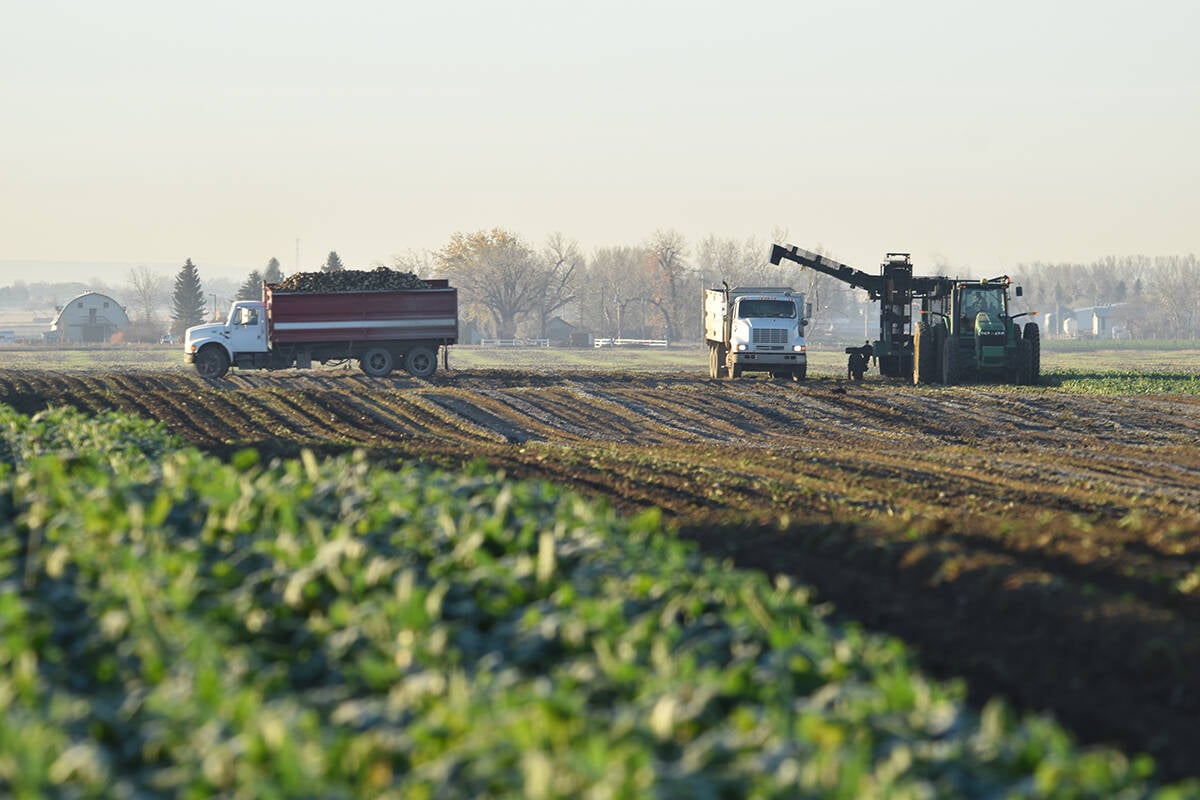Federal and provincial agriculture ministers rejected a pork industry proposal for repayable unsecured loans because of concerns it would trigger a trade challenge from the United States, says federal agriculture minister Gerry Ritz.
“What they are asking for are $1.5 billion and up of unsecured loans,” Ritz told a Dec. 14 news conference during which he announced a federal-provincial agreement to provide aid to the cattle and hog sectors.
“There’s really no way to do that at any government level. We have little things called treasury boards and auditor generals that take a dim view. And of course, they are completely trade challengeable.”
Read Also

Canada the sole G7 nation without a Domestic Sugar Policy to aid local sugar beet production
Canadian sugar beet industry vastly different to US with free-market system compared to protective government-regulated sugar program
Clare Schlegel, a Tavistock, Ont., hog producer and president of the Canadian Pork Council, disagreed with that interpretation.
Schlegel said lawyers studied the pork council’s proposal before it was presented to government and offered a different interpretation.
“We had our legal counsel look at our proposals before we presented them and we were told they were minimal risk on the trade front,” he said. “That is the position we presented to Agriculture Canada.”
But Ritz said he drew his interpretation in part from a discussion he had with the United States agriculture secretary about possible U.S. reaction to livestock aid.
“I actually had a discussion with Chuck Connor yesterday, the secretary of agriculture of the U.S.,” he said. “As long as we stay within existing programs, there’s nothing there that is trade challengeable. If we do start to talk about unsecured loans and interest free and not being able to recapture nothing secured, we would face a challenge tomorrow.”
In a November letter to Ritz, Schlegel proposed a loan program outside existing programs, in addition to improvements in program payments.
He described it as a short-term loan program that would move money to producers this year. It would carry interest and have a payback deadline.
Producers who default would agree to leave the industry.
Meanwhile, there was some industry confusion over the loan program that Ritz announced.
The minister said an adjusted advance payments program would make up to $2.3 billion available to producers this winter with the first $100,000 interest-free. He said a 500 sow hog operation could be eligible for up to $250,000 in advance payment loans.
The minister said the money would come from financial institutions.
“(But) they’re not a loan as a loan is structured through the financial sector,” Ritz told reporters. “These are cash advances on future programming from the government. They are payments that are entitled to these producers under the existing programs we have.”
Later, a federal official said they are not advances on future program payments.
“Those are actual loans that are guaranteed, backstopped by the government of Canada,” he said.
However, the bureaucrat said the loans would be secured by using as collateral 50 percent of the value of the herd “or what’s available in terms of coverage under existing programs.”














